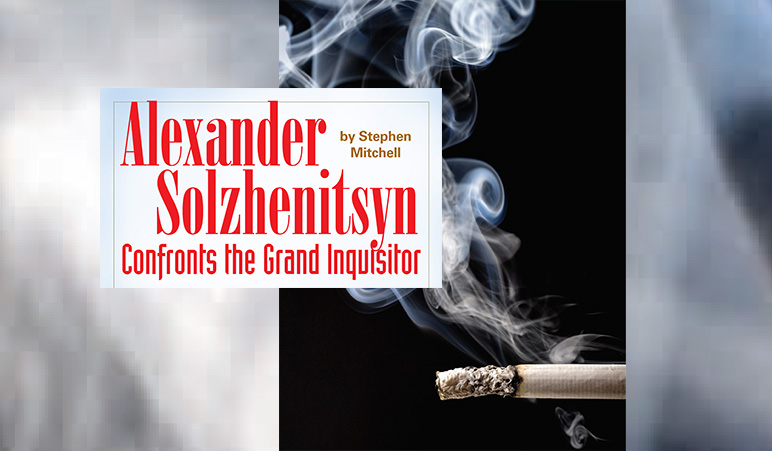The ways to challenge religious belief are many and varied. One can begin with a direct challenge to belief in God, or one can challenge certain beliefs about humanity that are foundational to the structures of particular religions. One famous literary character—Dostoevsky’s Grand Inquisitor (GI)—takes the latter approach by denying that humans are strong enough to bear the burden of free will. In an earlier article, I outlined this claim and suggested that the Inquisitor’s protest is profound enough to merit examining our own theology.1 If, however, we wish to retain our belief in free will (and I do) along with the attendant belief in human moral responsibility, both of which are necessary for belief in the Christian God, then we must find some response to the arguments against it. Since literature is concerned with truth, most pointedly with dramatic truth, a literary argument is best answered with another literary argument. A character who misrepresents humanity is best answered by one who represents it more truthfully. Fortunately another Russian novelist, Alexander Solzhenitsyn, has met the GI’s challenge.
This Postmodern Realities episode is a conversation with Journal author Stephen Mitchell as he answers questions about his literary apologetics article, “Alexander Solzhenitsyn Confronts the Grand Inquisitor” and covers topics including free will and Russian gulags.
We’d also like to invite you to subscribe to the Journal. To subscribe to the Journal, please click here.
When you to subscribe to the Journal, you join the team of print subscribers whose paid subscriptions help provide the resources at equip.org that minister to people worldwide. These resources include our free online-exclusive articles, such as this review, as well as our free Postmodern Realities podcast.
Another way you can support keeping our resources free is by leaving us a tip. A tip is just a small amount, like $3 or $5, which is the cost for some of a latte, lunch out, or coffee drink. To leave a tip, click here.
Other articles and Postmodern Realities by this author:
Episode 135-Questing for Divine Love-Cormac McCarthy’s The Road
“Questing for Divine Love: Cormac McCarthy’s The Road.”
Episode 111 Humanity Crucified: Hemingway and the Human Condition
Humanity Crucified: Hemingway and the Human Condition
Episode 092 Literary Apologetics: Flannery O’Connor
Rejoicing over Owls: Thoreau and the Gift of Being
The Sting of Death: Albert Camus and the Fight for Life
Reading My Favorite Atheists: Ivan, Raskolnikov, and Kirilov
